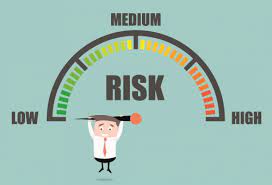Mon-Sat 9am-7pm



Consultants are responsible for undertaking short-term or long-term projects to address various issues and needs. They meet with management or relevant staff to understand requirements, conduct data analysis, and present findings to executives. Consultants provide advice, formulate plans for implementation, and offer suggestions for improvement. They may also arrange training and periodically evaluate the situation to make necessary adjustments. Overall, consultants leverage their expertise and analytical skills to provide valuable insights and solutions to clients in their field of expertise.

Having a bachelor's degree in a teaching area of your choice is the bare minimum requirement for becoming an educational consultant. A degree in education like B.Ed. is preferable because these consultants need to have some experience working as a teacher.
Most consultancy firms prefer hiring candidates with a master's or a PhD degree. Higher education options include M.Ed., M.A. in education, PhD after M.Ed. or M.A. and a post-graduate diploma in some aspect of education after B.Ed. Pursuing higher education helps you gain more knowledge and increases your capabilities to improve the learner's educational experience. Furthermore, relevant work experience is equally important as you may have to demonstrate different teaching methods or suggest changes in the curriculum.
After completing your graduation or master's, you can either address the educational requirements of children with special needs, work for a consultancy firm or get a job in an educational institute. Focussing on one area of expertise is essential to become a successful consultant.
As you help students choose the desired career path, it is important to understand the policies and regulations of different institutes across cities and states. In addition, it helps you advise on how to improve a school or a student's problem. For example, you may advise a higher secondary student to choose engineering as a career. In doing so, you need to have complete information on the entrance tests, eligibility criteria, reservation policies of different educational institutions and career outlook.
When you join a professional education association, you can get in touch with people who are passionate about working with students and institutions to improve their education-related decisions. In addition, membership of these associations offers development opportunities and discounts on various tools and provides current information about this profession. Joining such an association expands your network and helps you hone your skills. It also adds to your resume and can help you find better career opportunities.
As a new graduate you'll usually begin your management consultancy career in an analyst role, mainly carrying out research, data collection and analysis. Once you've gained some experience, you'll move on to the full consultancy role.
From here you'll typically progress to senior consultant or manager level, and this is usually achieved within about three years. At this level you will lead teams and design and develop solutions and projects.
It's also possible to take on project management roles, perhaps specialising in a certain industry to become an expert in that area.
Once you reach senior consultant or manager level, you can go on to become a partner or director of a firm where you'll have responsibility for generating new business, developing client relationships and overseeing the strategic growth of the firm.
You may have more advancement opportunities when working as a consultant than when working for a company directly. As an outside consultant, prospective clients may evaluate you by the results you delivered to previous clients. Creating a proven history of impressive performances may make you an appealing option when applying for an advanced position. This can create an opportunity to progress to larger clients at a quicker rate than is often possible through internal promotion.
Because most consulting work is contractual, a full-time consultant has significant control over the type of work they take on. By tailoring the companies you bid with or offer your services to, you can choose the projects you're interested in completing. This could help you follow your ideal career path.
Business consulting is a lucrative career choice for those who excel at their job. Bringing in a consultant to advise a multi-billion dollar company, for example, has the potential to create significant profits for that company. They may pay high wages for the right consultant.
While there are many excellent reasons to enjoy working as a consultant, the time may come where a professional opts to transition out of the field and seek full-time work with a single employer. After working as a consultant, professionals may have access to new network connections. They also may have a proven track record of previous results to share with prospective employers when applying for a new position. This can make it easier to find a job when leaving consulting.
When contracting as a consultant, a professional has a great deal of control over their professional career. In addition to choosing which contracts to pursue, a consultant can often have more individual flexibility within a contract regarding how they complete their work, provided they meet their contractual obligations. For professionals who prefer flexible work conditions, consulting can be a great option.
Working in consulting is an excellent way to build your professional network. Because a consultant often transitions between multiple clients in the time an employee would remain with their one employer, the consultant meets and forms personal and professional connections with more people. Having a broad network can benefit you in many ways, both when working within your consulting position or when considering seeking an employee position or starting your own company.
Consulting work is appealing to professionals who prefer variety in their daily tasks. Some consultants work with companies in different industries, providing a great deal of variety from one contract to the next. Even if you prefer to work as a consultant within a single industry that you specialize in, the needs and abilities of one client are likely to differ from the next, meaning the daily tasks required to improve their performances can be very different.
:If a consultant works independently, as opposed to working for a consulting firm, it may mean they do not receive benefits such as healthcare and retirement funds. If you're concerned about your benefits package as a consultant, there are three options. The simplest solution is to work for a consulting firm that offers benefits. As an independent consultant, you may negotiate retirement benefits, such as company stocks, when creating a consulting contract, or you can independently invest in your own retirement fund to provide financial security for the future.
Consulting often has high turnover rates, meaning that you may experience more coworker changes when working in consulting than you would expect when working as an employee at a company. This can make it harder to develop work relationships with your coworkers. To help manage this challenge, consider developing your network relationships both in and out of the firm. This can help you make long-lasting connections in the industry.
When working in consulting contractually, there is the potential for one contract to end when you do not have your next job lined up, leading to a period without income. The most effective way to avoid workless periods when contract consulting is to start your next contract search well in advance of the conclusion of your current project. By speaking with potential clients and identifying when you are available to begin, you can align multiple contracts to transition seamlessly from one client into the next.
Putting a plan into place and seeing the effects of its execution can be professionally satisfying, allowing you to experience the positive benefits of your work. When working as a consultant, you may not always remain with a company long enough to witness the results of your initiatives if they extend beyond the term of your contract. Maintaining connections with your former client allows you to remain updated on progress and can provide a sense of closure for the work you did while consulting with them.
Consulting is a results-driven industry, so some consultants may feel high levels of pressure to deliver a strong performance on each contract. The best approach to managing pressure when consulting comes in two forms. First, by giving your full commitment to the job, you improve your chances of having excellent results and can be confident that you performed at your best, which can help reduce stress. It's also beneficial to find stress relief techniques or after-work hobbies that help you relax after a challenging day.
Working in consulting may require you to travel to meet with different clients. When this requires long commutes or temporary relocation, it can have significant costs. When working for a firm, your employer may cover the costs of your work. As an independent consultant, you can mitigate the cost of travel by including costs into your contract, with the client increasing your payout or directly providing accommodations to reduce your travel expenses.
Consulting can be a demanding field with long hours. This is more common for consultants new to the profession. When starting work as a consultant, setting clear boundaries for your working hours can help you establish a working schedule that is acceptable to your clients while also allowing you to maintain your personal and professional happiness.
Call us at +91 9205084085, Monday - Friday, 9 am - 7 pm


